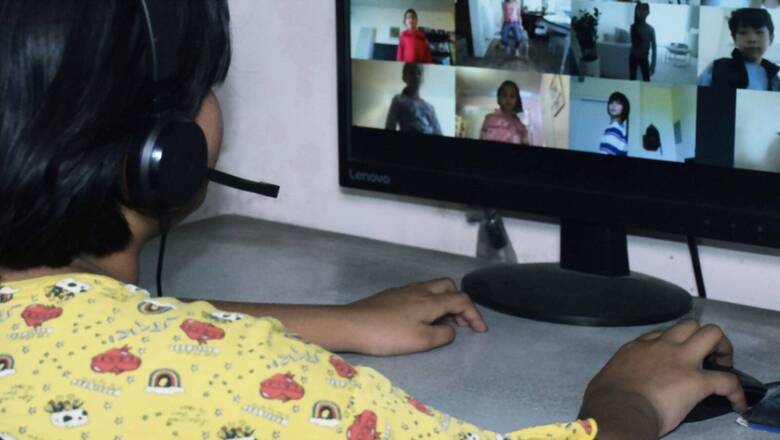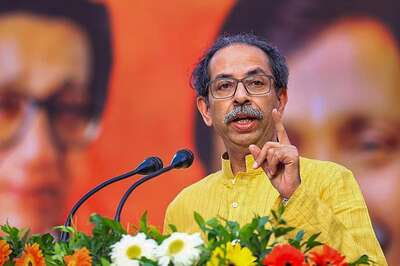
views
The Covid-19 pandemic brought education to a halt for many, but then along came ed-tech platforms. The overnight shift from physical classes to online ones created a disruption in the education field so much so that it is unlikely that it would go back to how we knew it before the pandemic.
From online classes to more focus on aptitude tests to access to more foreign institutes via remote learning — the pandemic has brought about a change in less than two years which otherwise would have taken about a decade to be implemented and accepted as mainstream. This National Education Day, News18.com talks to stakeholders to what out what would Indian education system be like in a post-pandemic world?
Life outside books
With a rise in technology, it has also become important to focus on social interactions, proximity with peers and educators to experience learning holistically, says Rajesh Bhatia, Founder and CEO of Treehouse Education. “We will also need to focus more than ever on the overall cognitive, emotional and social development of children and focus especially on their mental health as the pandemic has changed their world in a harsh manner and even emerging from isolation can now prove to be challenging for them,” says Bhatia.
Also read| National Education Day 2021: Why it is Celebrated on Maulana Abul Kalam Azad’s Birth Anniversary
Pranav Sudhir Kashyap, a class 12 student of CMR National Public School, Bengaluru says education is not all about books these days, it is about growing physically, mentally as well as emotionally. “Life outside textbooks and assignments is education as well. We learn so much from experiencing life. The objective of education is to provide students with opportunities to acquire skills and values to be better human beings.”
Shishir Jaipuria, Co-Chair, FICCI Arise, and Chairman, Seth Anandram Jaipuria Group of Educational Institutions, “Schools now have started to create and introduce Health Education Curriculum to nurture health consciousness in both learners and teachers. Various components of physical, mental and emotional health are being covered in this curriculum. Special emphasis is also being put on building new digital competencies in teachers by training them in Information and Communications Technology (ICT). Education in the post-pandemic era is moving into a new paradigm in which academic excellence, health consciousness, social-emotional learning and environmental sensitivity are becoming central to learning.”
Aditya Malik, MD and CEO, Talentedge says there is now a greater emphasis on career-oriented and outcome-based learning. “The surge in the new-age courses that are more result-focused, application-based and pocket-friendly enables learners to learn quicker and make them job-ready,” says he.
Read| National Education Day: From Abul Kalam Azad to Dharmendra Pradhan Know Qualification of Indian Education Ministers
Blended learning is the future
The use of technology is growing every day and many believe that traditional methods of teaching can go hand in hand with contemporary methods. “Initially, it was difficult to adjust to the online mode of learning but now we feel that it has made the whole education process more efficient and effective through chat groups, video meetings, voting, and document sharing. It has also helped us to learn new technologies and communication skills which we might have learned at later stages of education or on-the-job training,” says Paraj Bhargava BDes interaction design, 3rd year, JK Lakshmipat University, Jaipur.
On similar lines, Seema Kaur, Principal, Pacific World School believes while the pandemic threw a gauntlet, it also transformed our conservative thinking to receptive thinking. “Post pandemic, the education system shall be embracing the hybrid teaching-learning model to make the best of both offline and online teaching. Children have been confined to their homes for a long span and hence learning activities focusing on social and communication skills development is the need of the hour,” says Kaur.
Digital divide vs more screen time
The advent of technology does not mean every access to it. Those living in marginalised areas hardly have any access to digital devices or even the internet. These put forth the focus on the lack of proper digital infrastructure in the country says Devansh Vats, a class 9 student of SAI International. “Due to the pandemic, the sudden shift from classroom learning to virtual learning was not possible for certain marginalized communities due to the lack of infrastructure. The blaring urban-rural gap occurred to skewed preparedness of the IT infrastructure that had been grossly ignored,” says he.
Read| National Education Day 2021: Inspirational Quotes by Independent India’s First Education Minister Maulana Abul Kalam Azad
Rajesh Bhatia, Founder, and CEO of Treehouse Education adds that there is a need “to bridge the existing and constantly expanding digital divide with all available resources. On the other hand, we also must not let our children lose themselves in the digital rabbit hole and as much as possible help them to stay connected with the natural world.”
More foreign institutes accessible due to remote learning
Devansh Vats also says that due to remote learning, higher education has become more accessible, “for example, a student from a remote location of India will now be able to study from Harvard or Oxford Universities” he explains.
Navin, a class 12 student of Canadian International School too says that he hopes in the post-pandemic world the trend of “colleges and universities from around the globe holding seminars and workshops for high school students to attend continues. These sessions allow students to interact directly with representatives and be exposed to various types of higher education from around the world,” says Navin.
Read all the Latest Education News here




















Comments
0 comment